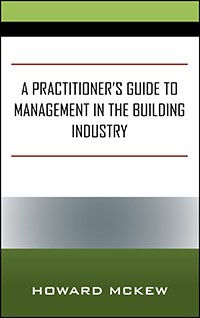The building industry is full of success stories individuals who have been able to advance up through the ranks. Those who have done so have probably supplemented their on-the-job experience with more formal education along the way. At the same time there are probably as many, if not more, stories of individuals who passed their point of peak proficiency and attained a level of ineffectiveness and/or dissatisfaction with their current job. There are enough reasons to fill a book on why this happens but I will touch on one specific reason: A person wants to succeed without recognizing the importance of job satisfaction, focusing only on achieving financial success.
Planning for Job Satisfaction
For everyone who wants to advance up in an organization or in the industry, they need to stop and assess their goals and expectations. When joining the workforce after high school or college, less than 5% of these new workers have formulated their immediate and long-range plans. Those who do, and stick by this process, will routinely adjust the goals over the years as they gain experience in the business and as they make career advancements. Without this plan, some people advance but never recognize and/or realize where their job is going to take them in the coming years. As a result, they never know if they are going to maintain job satisfaction.One thing schools, colleges, and universities don’t emphasize enough is that you need to be excited about your job when you get up every morning because you will most likely be working for the next 40 to 45 years. If you are only 20 years old and look back at all the changes in your life to date, you need to understand that the next 20 years and the following 20 years are not going to filled with as much change as you have experienced to date. So what is going to make you excited about getting up in the morning?
In this industry, as well as other industries, there can be pressures to advance as a means to attaining personal and professional goals. What individuals need to accept are the trade-offs between the two. With companies downsizing, many individuals are faced with the reality that they may not be able to maintain their current earnings and benefits. For many, this is a bitter pill to swallow. On the other hand, and more disappointing, are the employees who find themselves locked into high salaries and exceptional benefits even though they don’t like their jobs.



